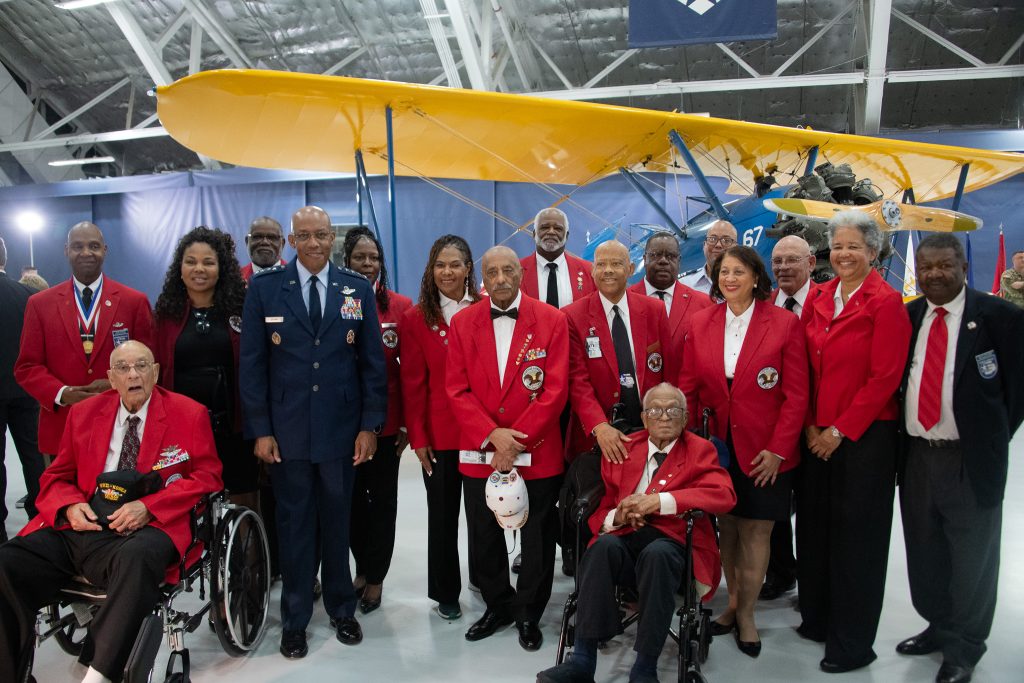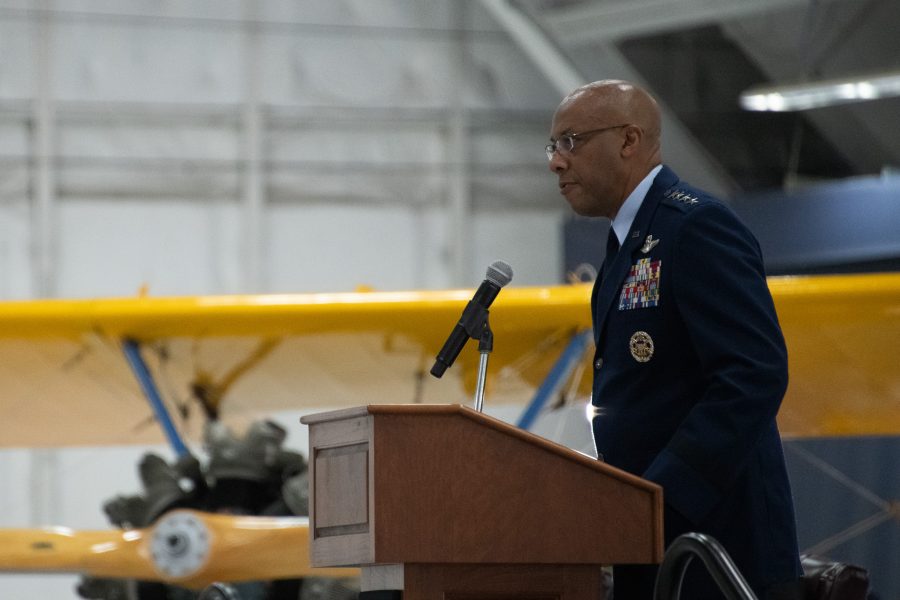When he was head of Pacific Air Forces in 2020, Air Force Gen. Charles Q. Brown Jr. recorded an emotional video following the killing of George Floyd that recounted how he, as a Black man, had to prove that he was as capable as some of his white counterparts.
Three years later, Brown is the first Black service chief as Air Force Chief of Staff and has been nominated by President Joe Biden to become the second-ever Black Chairman of the Joint Chiefs of Staff.
“None of us decide to grow up to be something we’ve never seen before,” Brown said July 28 at the National Museum of African American History and Culture in Washington, D.C.
He was speaking at the Truman Library Institute’s Civil Rights Symposium, which was held to commemorate the 75th anniversary of the desegregation of the U.S. Armed Forces by President Harry Truman’s Executive Order 9981, signed on July 26, 1948.
Truman’s executive order mandated “equality of treatment and opportunity for all persons in the armed services without regard to race, color, religion, or national origin.”
Now, some 44 percent of the nation’s Active-Duty, all-volunteer force are Americans of color, according to the Pentagon.
In a heartfelt address to the symposium and in other recent appearances, Brown recalled the many Black pioneers who proved, despite discrimination, that they had the ability and willingness to serve a nation that did not treat them equally.
“You must reflect on how far we’ve come as a nation,” Brown said. “Maj. Gen. James Hamlet, an infantry officer in the segregated mighty Second Infantry Division in World War II and an army aviator in Vietnam, said in his retirement ceremony, ‘When I entered the army, a Black man was not allowed to lead a squad to the latrine. We have come a long way.’ We’ve come a long way indeed.”
Two days earlier, Brown took note of the most famous example in Air Force: the Tuskegee Airmen, the air and ground crew who served in the Black flying units in the Army Air Forces, the predecessor to the independent U.S. Air Force, during World War II.
“Their progress is what made it possible for me to stand here today,” Brown said at Joint Base Andrews, Md., when he accepted a PT-17 Stearman biplane, used as a trainer by Tuskegee Airmen, to be exhibited at the National Museum of the United States Air Force at Wright-Patterson Air Force Base, Ohio.

The Pentagon has spent much of this week reflecting on the diversity of America’s armed forces. On the evening of July 27, Biden addressed the Truman Civil Rights Symposium where he recognized high-profile pioneers, including the Buffalo Soldiers and Tuskegee Airmen, and less well-known individuals.
“The list goes on, including rank-and-file cooks, custodians, secretaries, mailmen—too often overlooked and forgotten, but made it work,” Biden said during his address, which Brown attended.
In 2021, a year after Brown became the Air Force Chief of Staff, Lloyd J. Austin III became the first Black Defense Secretary. If Brown is confirmed as Chairman, the top two U.S. military officials will both be African Americans for the first time.
“For far too much of our nation’s history, service members of color who fought to defend our country were forced to serve in segregated units,” Austin said in a July 26 statement. “Black troops were denied the very rights that they fought to defend. Despite this bitter heritage, segregated units demonstrated their skill and mettle in war after war.”
Brown offered some more personal reflections.
“I’m very humbled when I’m out and about,” Brown said July 28. “It happened even to me last night, at last night’s event, when people approached me and told me that I’m an inspiration. And what goes through my mind is, ‘Really? I’m just C.Q. Brown Jr. I’m an ordinary American who has been provided extraordinary opportunities. Opportunities provided by Executive Order 9981.’”
Brown said that he hoped such a career would eventually be less remarkable.
“I hope that one day, progress will mean there will be no more firsts to be celebrated; that we are all left celebrating each other’s achievements as fellow Americans,” Brown said.
